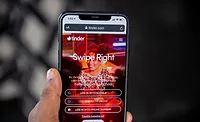Study Finds Three in Ten Americans Would Use Their Cell Phone to Track Personal Health
Three in ten Americans recently surveyed by PricewaterhouseCoopers' Health Research Institute said they would use their cell or smart phone to track and monitor their personal health, and 40 percent would be willing to pay for a remote monitoring device that sends health information directly to their doctor. Their interest reflects the fast-growing market for remote and mobile health and significant business opportunities for organizations using consumer technologies to support preventative, acute and chronic care. The findings of the survey and new report entitled Healthcare Unwired were presented by PricewaterhouseCoopers at the mHealth Initiative 2nd International mHealth Conference in San Diego.
According to the report, wireless technology, remote monitoring and mobile devices are changing the nature of healthcare, making it possible to deliver care anywhere in ways that are proving to reduce healthcare costs and keep people healthier. PricewaterhouseCoopers' research includes a nationwide survey of 2,000 consumers and 1,000 physicians regarding their use and preferences for remote and mobile health services and devices.
The survey found:
- Thirty-one percent of consumers said they would be willing to incorporate an application into their existing cell phone or smart phone to be able track and monitor their personal health information.
- Forty percent of consumers said they would be willing to pay for a device and a monthly subscription fee for a mobile phone application that would send text and e-mail reminders to take their medications, refill prescriptions or to access their medical records and track their health.
- Twenty-seven percent of consumers said they would find medication reminders sent via text to be helpful, and men are twice as likely as women to say they would use a mobile device for health-related reminders.
- Forty percent of consumers would also be willing to pay for a remote monitoring device and a monthly subscription that would send data automatically to their doctor health information such as heart rate, blood pressure, blood sugar and weight.
- Fifty-six percent of consumers say they like the idea of remote healthcare, and 41 percent would prefer to have more of their care delivered via a mobile device.
From physicians, the research found that 63 percent of physicians surveyed said they are using personal devices for mobile health solutions that aren't connected to their practice or hospital IT systems, and 30 percent said their hospital or practice leaders will not support the use of mobile health devices.
Also, of those physicians who are using mobile devices in their practice, 56 percent said the devices expedite decision making and nearly 40 percent said the use of mobile devices decreases time spent on administration. The top challenge physicians said they face in their practice is accessing information where and when it is needed.
One-third of physicians surveyed said they currently make decisions based on incomplete information for seven out of ten patients they see. Only half of physicians surveyed currently access electronic medical records while visiting and treating their patients, a situation that will improve with meaningful use requirements for physicians to use interoperable electronic medical records.
Also, 40 percent of physicians said they could reduce the number of office visits by 11 to 30 percent by using mobile health technologies like remote monitoring, email or text messaging with patients. Such shifts could address the shortage of physicians, reduce hospital readmission costs and increase access for patients who delay care because they don't want to wait for an appointment.
Looking for a reprint of this article?
From high-res PDFs to custom plaques, order your copy today!







